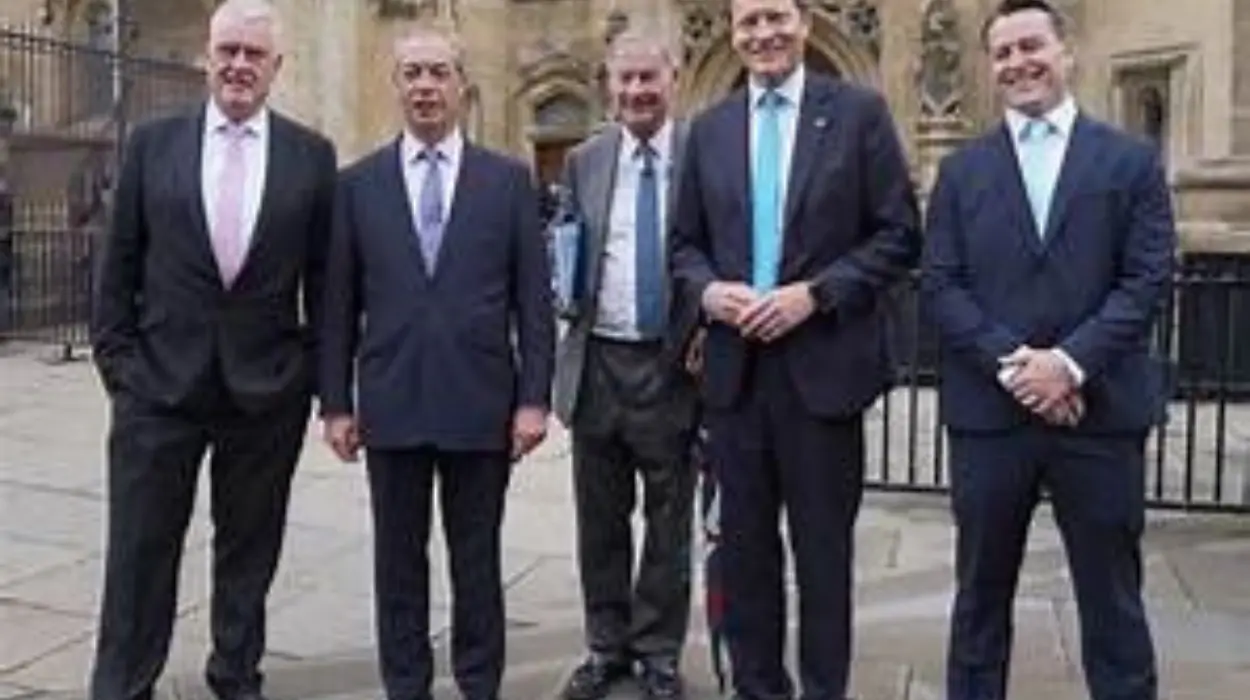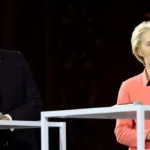
Nigel Farage Surges in UK Politics Despite Criticism, Tipped as Potential Prime Minister
Nigel Farage, leader of Reform UK, is at the center of a political storm as his party surges in popularity, sparking fresh debate about his potential to become the next Prime Minister. Despite being branded a “pathetic little man” by political opponents and facing accusations of divisive tactics, Farage’s Reform UK has made significant electoral gains and is now seen by many Britons as the main opposition to the Labour government. This article explores the latest polling data, public reactions, and political implications of Farage’s rising profile.
Reform UK’s Rising Popularity and Political Momentum
Recent local elections and opinion polls reveal a remarkable surge for Reform UK, with the party polling as high as 29% nationally in YouGov’s latest figures, placing it ahead of both Labour and the Conservatives in some surveys1. This marks a dramatic shift in the UK political landscape, where Reform UK, under Farage’s leadership, is increasingly viewed as a credible alternative to the traditional parties.
An Ipsos poll conducted in early May 2025 found that 37% of Britons now consider Reform UK the main opposition party, surpassing the Conservatives at 33%
. Furthermore, 39% of respondents believe Farage is more likely to become Prime Minister than Conservative leader Kemi Badenoch, who garnered only 25% confidence in the same poll. This shift reflects growing dissatisfaction with both Labour and Conservative leadership.
Public Perception and Polling Insights
Despite Reform UK’s rising support, Nigel Farage remains a polarizing figure. According to a YouGov poll, 32% of Britons hold a favorable opinion of Farage, an improvement from previous months, but 59% still view him unfavorably, resulting in a net rating of -27. His appeal is strongest among Reform UK voters (87% favorable) and has improved slightly among former Conservative and Labour voters.
When asked who would make the best Prime Minister, Farage trails Labour’s Keir Starmer, who leads with 44% preference compared to Farage’s 29%. Farage also ranks behind Liberal Democrat leader Ed Davey and narrowly trails Badenoch in some matchups. However, Farage’s support is concentrated among voters concerned about immigration control and traditional British values, with 25% citing immigration as a key positive aspect of his leadership.
Controversies and Political Reactions
Farage and Reform UK have not escaped controversy. A recent Reform UK advertisement accused Scottish Labour leader Anas Sarwar of promoting sectarianism and prioritizing the Pakistani community, which Labour condemned as “blatantly racist. Sarwar retaliated by calling Farage a “pathetic little man” and accused him of injecting hatred and division into Scottish politics.
Labour figures have been vocal in their criticism. Shadow Chancellor Mel Stride likened Farage to Jeremy Corbyn in a disparaging comparison, while Labour MP Mike Tapp described him as a “rich bloke masquerading as a working-class hero.” These attacks highlight the deep political polarization surrounding Farage’s rise.
Farage, however, has defended his party’s policies, including scrapping the two-child benefit cap and offering tax breaks for married couples, framing them as support for lower-paid British families. He has also accepted a challenge from Prime Minister Keir Starmer for a head-to-head debate, proposing it be held in a traditional Labour stronghold to engage directly with voters.
Reform UK’s Challenges and Future Prospects
While Reform UK’s momentum is undeniable, significant challenges remain. The party currently holds only five MPs in Parliament, and its ability to translate public support into parliamentary seats under the UK’s electoral system is uncertain. Polling also suggests a ceiling on Farage’s appeal, with many voters still hesitant to back him as Prime Minister outright.
Moreover, internal party tensions have surfaced, including public disputes involving party figures and external commentators, which may affect party unity and public confidence.
Nonetheless, Reform UK matches or slightly exceeds Labour in public confidence regarding the ability to govern and manage local councils, indicating growing trust in the party’s competence. This newfound credibility presents both opportunities and challenges as the next general election approaches.
Nigel Farage’s Reform UK has emerged as a formidable force in British politics, capitalizing on public dissatisfaction with traditional parties and concerns over immigration and national identity. Despite harsh criticism and accusations of divisiveness, Farage is increasingly seen as a potential Prime Minister by a significant segment of the electorate. Whether this translates into electoral success remains to be seen, but the political landscape in the UK is undeniably shifting.
As the next general election looms, all eyes will be on Farage and Reform UK to see if they can sustain their momentum and overcome the hurdles of leadership perception, party unity, and electoral mechanics to challenge Labour and the Conservatives at the ballot box.





